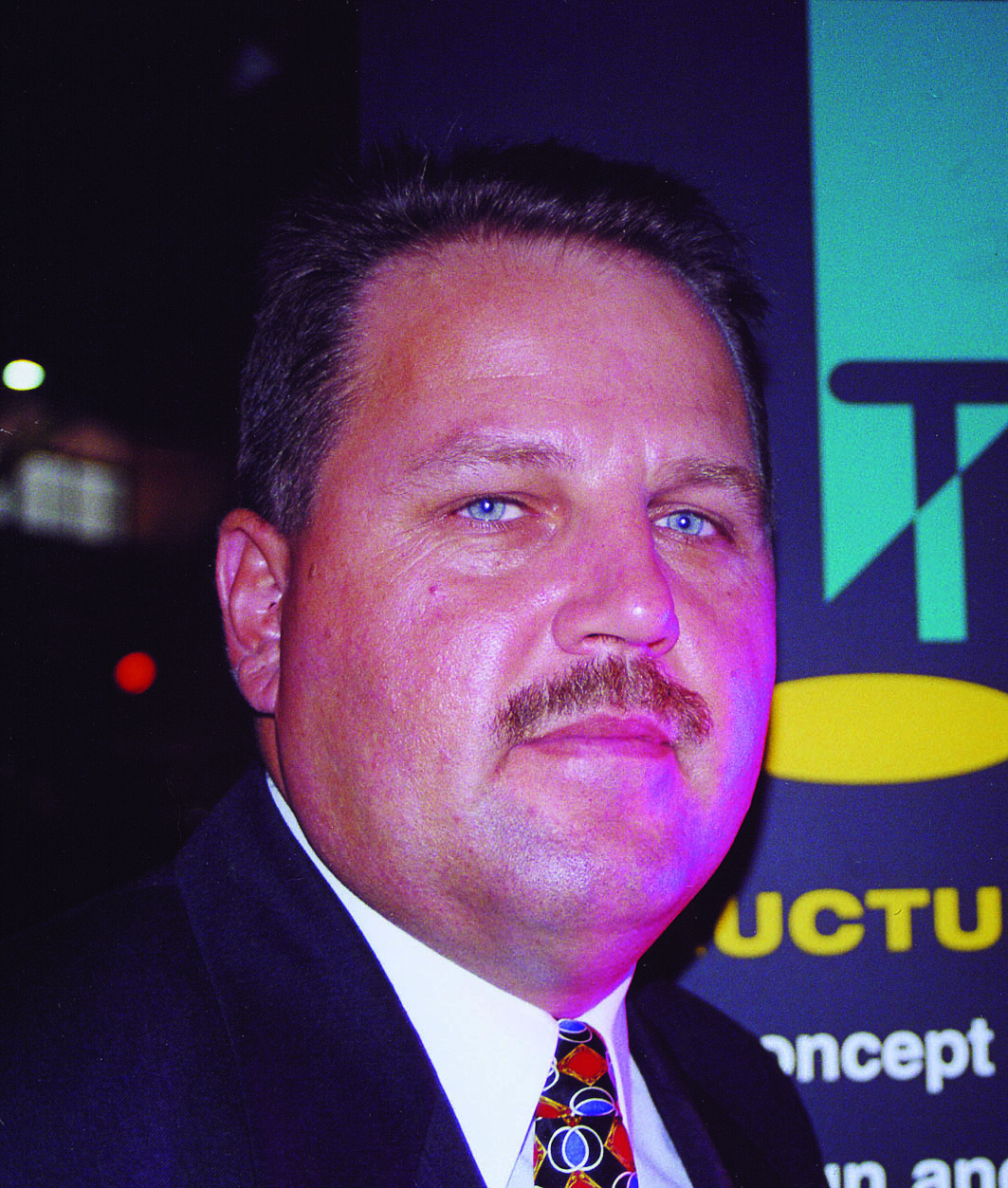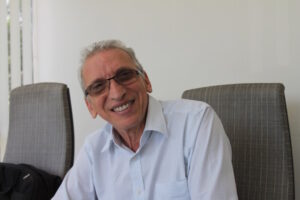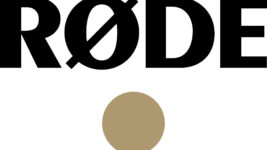News
21 Sep 2016
Inside the $1 million TCP fraud

Subscribe to CX E-News
Biz Talk, by Julius Grafton
Sydney AV installation company Total Concept Projects employed 100 people and turned over $50 million. Bad management led to the failure of the group in April 2010. It had traded over two decades and done contracting work on countless large and small projects over Australia.
In the desperate final days of the group, co owner Richard Skarzynski embarked on a series of fraudulent lease transactions that led to over a million dollars being funneled to creditors and others. This in turn led to complex civil legal action against two industry heavyweights, Hills and Bosch, where a lease company attempted to recoup over half a million dollars it paid them.
TCP was owned by Skarzynski (main image) and his partner, Anthony Musico (pictured below). Both men were arrested after the civil case collapsed and charged with fraud offenses. They were released on bail after being held for hours in the dock at Auburn Police Station in Sydney’s west.
“It was 7.30 on the morning of December 18 last year and two cops come to my door and say ‘Are you Anthony Musico’? I say yes. They say, ‘you’re under arrest!’” Musico said.
“I had no idea what it was about. I had my board shorts and no shirt – I said, OK, you’re arresting me. Let me go upstairs and get a shirt on. They follow me up the stairs.”
Hauled off to the Police Station, Musico cooled his heels in the charge room while the Police attempted to find Skarzynski.
“They took my wedding ring. Take my fingerprints and a mug shot of me. I’m freaking out. Then they put me in the lockup. A glass door, stainless steel chair. Skarzynski comes in with his diary, they put him in the cell next to me.”
Eventually both men were released on bail, instructed not to talk to each other.
SEEDS OF CRISIS
The collapse of TCP came after a decade of rapid expansion that saw the firm move from regular commercial audio visual contracting to an ambitious media foray that involved selling digital signage to registered clubs.
“In 2004 the idea was to put plasma screens into the clubs. We would centrally manage the content, the clubs would buy the screen on finance. Each package was worth about $240,000 for 20 screens, installation and content”.
The venture was called Total Concept Media, and the pitch to the clubs was that TCM would solicit and supply local advertising through the screen system in each club. Club events and promotions would run alongside paid advertising, that TCM would source.
“Skarzynski offered the clubs a 100 percent guarantee that if they didn’t get enough advertising to make the lease payments then we would make the payments – 8 grand a month each.” Musico is almost yelling now.
“I said, ‘I’m not going to do that. Adjust the offer on the contracts to 50%. He said ‘OK, we will’. But he didn’t’”
“It was like a Ponzi scheme. We would sell a system, get the quarter million, and he would be paying some of the lease money – eight grand a month – back to some of the clubs”.
“Of course there was a shortfall in advertising. We were a content creator, a content provider, we had a sales team to provide advertising. How the f—k can we guarantee this advertising?”
“He (Skarzynski) said ‘the clubs are making so much money’. Plus the liability (for the leased systems) was with the clubs not us. We had clubs from Maroochydore to Wagga Wagga up until 2007.”
The TCP Group staff count went from 40 to 100. But then came the global financial crisis. In a double whammy the clubs were hit with new anti-smoking legislation.
“The money stopped. In 2008 I started to find out what was going wrong”, Musico says. “We were outfitting the Australian Headquarters Joint Operations Command (HQJOC) centre 15 km south of Bungendore, in the ACT. Plus we were doing the Children’s Hospital in Melbourne – big, big jobs.”
BETTER DAYS
Total Concept Productions (as it was known then) grew out of a firm called Disco Roadshow that Skarzynski, Musico and a third partner started after school. They were ambitious DJs and the late 1980’s was a boom time for nightclubs.
The guys all met when they were 13, at St Patricks Strathfield. By 1984 we had the Granville shop. “We were hungry, our motto was ‘do whatever it takes’. Those were good times.”
Disco Roadshow became TCP in 1988 and they did laser shows too, on some of the big tours including the huge Jesus Christ Superstar arena tour.
But big AV contracting was the way forward. They got the first big contract, for fitout of the entire Shangri-La Hotel in Sydney between 1989 and 1991. Then came the Aquatic Centre at Homebush. The 1990’s Olympic boom provided very good growth.
TCP were revered and reviled in the industry. Other installation firms said they under quoted work. Skarzynski had more front than a Mack truck and started to live beyond his means.
Musico was also living well. “I decided to rebuild in Strathfield, did a knock down and put up a 700k house. But he (Skarzynski) buys for $3m, knocks it down and builds a $2 million house.
“Look, I’m not clean, I buried my head in the sand. I just said ‘sort it out’. It’ll be OK”, Musico confesses.
The global financial crisis hit, turnover got worse, creditors were screaming, and deals had to be done.
“I put 400k of my money into the business and said to him ‘you need to do this too’, so he borrows 400k. I’m over it, I tell him we need to sell the business and then we find a buyer for about $7 million”.
THE FRAUD
The buyer does due diligence and decides something is off with some finance leases. Musico wants to know what the problem is.
“The guy says ‘you have sequential serial numbers on some of the leases’. I say, ‘what leases?’”
Increasingly desperate, Skarzynski embarked on a unique fund raising exercise in August 2009. He located a willing lease broker, Matthew Sofi, who was a principal at Australian Financial Services and Leasing (AFSL).
Sofi put the first proposal to Macquarie Bank which took a quick look at TCP and rejected the deal immediately. Ironically the Macquarie executive was Michael Roth, who was later convicted of lease fraud. SMH reported: The judge described how Roth had got “caught up with” a senior manager who drank and gambled at lunchtimes, as others at Macquarie turned a blind eye.
Undeterred Sofi then decided to do the deal himself with AFSL as lease company.
An invoice from Hills Industries Limited for $308,000 was emailed from Skarzynsi’s office to AFSL. Four days later AFSL paid Hills the $308,000, having established a finance lease with TCP over 48 months, payable at $9219.10 per month. The lease was signed by Skarzynski and Musico, witnessed by someone in Skarzynsi’s office.
Much later the Hills CFO Renee McLeod would advise Sofi that they understood the payment was in respect of their regular account with TCP – not payment for the invoice held by AFSL. The invoice was, in fact, counterfeit. It was not generated by Hills. It showed dozens of items of equipment, each with a bogus serial number.
Possibly emboldened by this scheme to pay off a major creditor, Five days later Skarzynski turned his attention to Bosch, which had already sued TCP for $198,000. Bosch had court orders to seize the funds from TCP’s bank and Skarzynski needed to get them off his back.
An invoice from Bosch was emailed to AFSL but Sofi was confused. The invoice was for $147,000 plus gst – not the $198,000 requested. Skarzynsi’s personal assistant then provided a fresh invoice for $198,000 from Bosch. Again it had page after page of equipment, all with bogus serial numbers.
Again Sofi would later find that the Bosch invoice did not exist. Amanda Blake at Bosch Security Systems Pty Ltd told him the document known as CO51689 was not an invoice.
Skarzynski had stumbled onto a finance company that trusted him. While AFSL did send Hills and Bosch a remittance advise note for the funds it was paying them, it did not check the invoices were indeed legitimate.
A CHAIN OF DECEIT
Skarzynski embarked on a leasing binge. Sofi was a compliant contact, possibly less diligent as he was risking his own money.
The following month a lease was approved, this time the supplier of goods was a firm called Ironmark Engineering Pty Ltd. The invoice was duly provided by Skarzynski’s personal assistant, totaling $192,445. Again lease documents were signed in the TCP office, by both directors, witnessed by a staff member.
Somewhat strangely the funds to pay the Ironmark invoice were paid by AFSL to a company called Jetbravo Pty Ltd. It is not clear where those funds ended up.
More transactions occur through to the end of 2009, and a surprising number of errors on invoices occur. Sofi is on the phone to Skarzynski’s P.A. often. Other finance firms are approached to fund some of the deals, and they all decline.
Sofi is getting a little cautious, so he decides to fund another lease provided TCP discharge some of their previous finance. On the basis of an undertaking by Skarzynski to pay out two of the leases within six months, Sofi approves another deal, and again Ironmark is the ‘vendor’.
Holding an invoice from Ironmark, he ultimately pays $160,600 into a bank account that turns out to be Skarzynski’s personal company, R & G Investments Pty Ltd.
Just prior to Christmas, another deal is run past Sofi. This time, Skarzynski’s assistant says that it involves 16 Plasma screens and brackets to be installed for the Australian Open. The amount is $117,920 and again the invoice came from Ironmark.
Banking details are not matching up, invoices are being resent. Paperwork is flowing at a furious rate, and almost all transactions are handled between Skarzynski’s long suffering personal assistant and Sofi.
By early February 2010, Sofi is alarmed at the inconsistencies and irregular payments coming from TCP. He is sending regular demands for payment. He meets Skarzynski, then finally on February 17th loses his patience and advises Skarzynski and Musico that he will place caveats over various properties owned by TCP.
THE COLLAPSE
Musico calls Sofi, and then hurriedly drives over to view the documents.
A crisis meeting of all the parties is called for the following morning. Musico heads to his lawyer, who calls Sofi. A series of meetings and actions occur, including Sofi obtaining a mortgage over Skarzynski’s home.
Through the first half of March, AFSL sends demands to all the TCP Group firms, along with Musico and both Skarzynski and his wife. Sofi finally contacts Bosch and Hills and faces the revelation that the invoices he holds were not in fact generated by those firms.
Worse still, investigations reveal that Ironmark know nothing about anything. It transpires the firm is a small fabricator of steel (a contractor to TCP), operated by a Robert Shen who is very confused – English is his second language. Shen refuses to discuss anything with Sofi.
Panic reigns. On 14 April 2010 TCP Group is placed into receivership. Ferrier Hodgson take control, fire Skarzynski and quickly close the doors. The bank sells the real estate. Skarzynski and Musico eventually are bankrupted.
Sofi decides to sue Hills and Bosch on the basis the funds were paid by mistake. They defend the action, which goes all the way to the High Court of Australia and is ultimately unsuccessful. Sofi has now spent a considerable amount on the failed attempt to force Hills and Bosch to repay what they contend was money received in good faith to repay their respective TCP exposures.
Sofi’s action against Hills and Bosch exposed the chain of fraudulent documents that originated in Skarzynski’s office. With the case failed, Sofi refers the fraud to the police, who arrest Skarzynski and Musico in December last year – 2015.
THE CASE
Detectives spent a lot of time dredging through the document trail supplied by Sofi, and build a case against both directors.
In total the matter involved $1,050,120 of fraudulent leases. The directors were each charged under the Crimes Act with six charges covering 18 instances of ‘obtain money by false misleading statement’.
Fortunately for the TCP duo the matter was punted into the Local Court at Liverpool, where the penalty for a conviction was a maximum of two years in jail. The District Court can dish up a much longer sentence. It appears District Court logjams led to the decision to hear the case in the junior court.
Musico had his matter dropped when he was able to prove that his signature had been forged on all the documents. He was not a party to the fraud and has no convictions against his name.
Skarzynski pleaded guilty to all charges in May this year, and was remanded on bail for sentencing. On September 9 at Liverpool Local Court he was sentenced to 250 hours community service.
He and Musico still work in the AV contracting industry. After the failure of the firm Musico’s brother bought the TCP name and phone number back from the receiver. Musico was working as an AV Tech at a venue to feed his family, and eventually helped his brother refit the same venue.
This led to a small reincarnation of TCP that today handles work for many former clients – but not any of the 32 registered clubs. They all took their medicine on the failed TCM debacle, some losing almost all of the $240,000 they paid, plus interest, for a solution that was never going to work. Overall TCM gouged over $7.5 million from the clubs. Perfectly legally.
Skarzynski now works for an AV integrator in Sydney, and is a business coach and mentor with a practice “where business leaders are continually challenged to make the courageous decisions vital in the definition of their and their business’ long term success. (It) takes leaders on a journey towards business excellence and personal enrichment through peer-to-peer mentoring, sharing and learning. Where members are encouraged to challenge themselves, and be challenged by others, in a safe environment.”
“Richard has a practical business approach and is committed to delivering value to business owners and leaders that supports them to achieve their best”, they offer.
* Seminar at ICTECH, all major cities in October: Crime and chaos: Inside the TCP collapse. Register free HERE
Subscribe
Published monthly since 1991, our famous AV industry magazine is free for download or pay for print. Subscribers also receive CX News, our free weekly email with the latest industry news and jobs.







